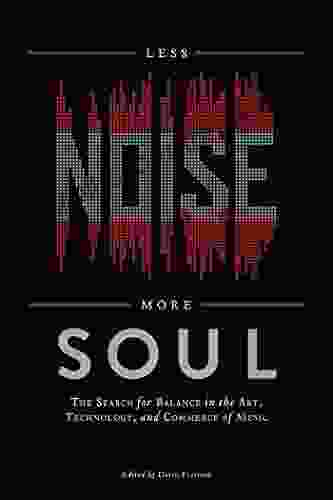Humanistic Approach To Caregiving: A Path to Compassionate and Fulfilling Support

In the realm of caregiving, the humanistic approach stands as a beacon of compassion and empathy, guiding us to provide support that upholds the dignity, autonomy, and individuality of those we care for.
4.6 out of 5
| Language | : | English |
| File size | : | 139885 KB |
| Text-to-Speech | : | Enabled |
| Screen Reader | : | Supported |
| Enhanced typesetting | : | Enabled |
| Print length | : | 776 pages |
The Essence of Humanistic Caregiving
At its core, the humanistic approach to caregiving is rooted in the belief that every individual is a unique and valuable being, deserving of respect, dignity, and empowerment. It recognizes that providing care is not merely a technical task but rather a profound human interaction that requires a deep understanding of the physical, emotional, and spiritual needs of those we serve.
Humanistic caregivers strive to:
- Establish genuine and meaningful relationships with those in their care
- Meet the individual needs and preferences of each person
- Foster a sense of autonomy and self-determination
- Respect and preserve the dignity of those they care for
- Create a supportive and nurturing environment that promotes well-being
Benefits of a Humanistic Approach
Embracing a humanistic approach in caregiving offers numerous benefits, both for those receiving care and for those providing it:
For those receiving care:
- Enhanced quality of life: Humanistic care focuses on creating a positive and fulfilling experience for those in need, improving their overall well-being and quality of life.
- Increased dignity and self-worth: By respecting the autonomy and individuality of those they care for, humanistic caregivers help them maintain a sense of dignity and self-worth.
- Reduced feelings of isolation and loneliness: Humanistic care fosters meaningful connections and relationships, reducing feelings of isolation and loneliness that are common among those in need of care.
For those providing care:
- Greater job satisfaction: Humanistic caregiving allows caregivers to experience a sense of purpose and fulfillment, knowing that they are making a positive impact on the lives of others.
- Reduced burnout and compassion fatigue: By focusing on compassion and empathy, humanistic caregivers are better able to manage the challenges of caregiving and avoid burnout.
- Enhanced communication and trust: Genuine and respectful relationships built on trust facilitate effective communication between caregivers and those in their care.
Practical Applications of Humanistic Caregiving
Implementing a humanistic approach to caregiving requires conscious effort and dedication. Here are practical strategies to help you create a more humanistic caregiving environment:
- Listen attentively: Pay undivided attention to those in your care, actively listening to their needs, concerns, and preferences.
- Communicate respectfully: Use clear and respectful language that acknowledges the individuality and worth of each person.
- Foster autonomy: Encourage independence and self-determination as much as possible, respecting the choices and decisions of those in your care.
- Promote dignity: Treat those in your care with respect and compassion, maintaining their privacy and personal space.
- Emphasize relationships: Build genuine relationships with those in your care, getting to know their life stories, values, and aspirations.
The humanistic approach to caregiving is a transformative force that has the power to revolutionize the way we provide and receive support. By embracing compassion, empathy, and respect, we can create a more fulfilling and compassionate society for all. As caregivers, we have the privilege of making a meaningful difference in the lives of those in need, and the humanistic approach provides a roadmap to do so with dignity, purpose, and love.
4.6 out of 5
| Language | : | English |
| File size | : | 139885 KB |
| Text-to-Speech | : | Enabled |
| Screen Reader | : | Supported |
| Enhanced typesetting | : | Enabled |
| Print length | : | 776 pages |
Do you want to contribute by writing guest posts on this blog?
Please contact us and send us a resume of previous articles that you have written.
 Book
Book Novel
Novel Page
Page Chapter
Chapter Text
Text Story
Story Genre
Genre Reader
Reader Library
Library Paperback
Paperback E-book
E-book Magazine
Magazine Newspaper
Newspaper Paragraph
Paragraph Sentence
Sentence Bookmark
Bookmark Shelf
Shelf Glossary
Glossary Bibliography
Bibliography Foreword
Foreword Preface
Preface Synopsis
Synopsis Annotation
Annotation Footnote
Footnote Manuscript
Manuscript Scroll
Scroll Codex
Codex Tome
Tome Bestseller
Bestseller Classics
Classics Library card
Library card Narrative
Narrative Biography
Biography Autobiography
Autobiography Memoir
Memoir Reference
Reference Encyclopedia
Encyclopedia Dj Kadagian
Dj Kadagian Emme
Emme Carolyn Barber
Carolyn Barber Bryanna Clark Grogan
Bryanna Clark Grogan Celia Oakley
Celia Oakley Caroline Taggart
Caroline Taggart Bryan Garsten
Bryan Garsten Scott Giacomucci
Scott Giacomucci John M Blain
John M Blain Catharine Arakelian
Catharine Arakelian Craig Pritchett
Craig Pritchett Paul Meisel
Paul Meisel Thomas M Haladyna
Thomas M Haladyna Catharine Allan
Catharine Allan C R Cooper
C R Cooper Steve Daut
Steve Daut Cari Meister
Cari Meister Fabrizio Benedetti
Fabrizio Benedetti Kirk Byron Jones
Kirk Byron Jones Gaile Parkin
Gaile Parkin
Light bulbAdvertise smarter! Our strategic ad space ensures maximum exposure. Reserve your spot today!
 Vic ParkerFollow ·7.6k
Vic ParkerFollow ·7.6k Clayton HayesFollow ·8.2k
Clayton HayesFollow ·8.2k Jesse BellFollow ·6.7k
Jesse BellFollow ·6.7k Casey BellFollow ·12.6k
Casey BellFollow ·12.6k John KeatsFollow ·5.1k
John KeatsFollow ·5.1k Richard SimmonsFollow ·4.6k
Richard SimmonsFollow ·4.6k Brenton CoxFollow ·18k
Brenton CoxFollow ·18k Jake CarterFollow ·7.8k
Jake CarterFollow ·7.8k

 Shawn Reed
Shawn ReedEmbark on a Transformative Journey: Discover Ritual...
Delve into the Enigmatic World of...

 Connor Mitchell
Connor MitchellUnleash Your Soul: A Journey to Less Noise, More Soul
Embrace the Power of Silence...

 Derek Cook
Derek CookRitual Theory, Ritual Practice: Unlocking the Secrets of...
Rituals have been an...

 Evan Hayes
Evan HayesStop the Itch: Simple Steps to Lasting Relief
Itching, an...

 Herman Mitchell
Herman MitchellThe Ultimate Premarital Guide: Your Essential Wedding...
Congratulations on your engagement! This is...

 DeShawn Powell
DeShawn PowellUnlocking the Enigma of the Mantle: A Deep Dive into "The...
Our planet,...
4.6 out of 5
| Language | : | English |
| File size | : | 139885 KB |
| Text-to-Speech | : | Enabled |
| Screen Reader | : | Supported |
| Enhanced typesetting | : | Enabled |
| Print length | : | 776 pages |












